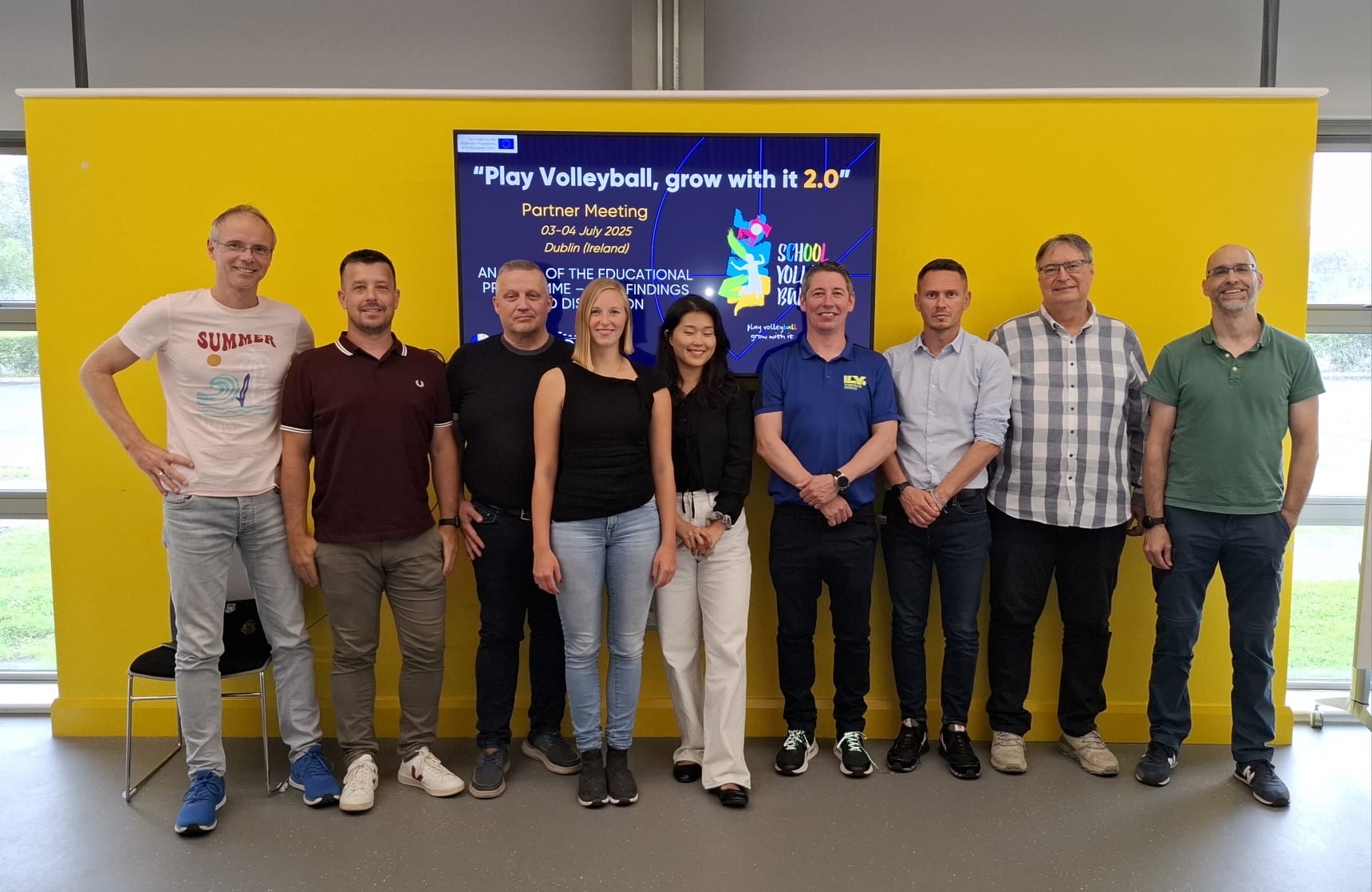PVGW 2.0 partners review feedback on educational output, discuss project legacy
News
The partners of the ‘Play Volleyball – Grow with it (PVGW) 2.0’ project came together this past week in Dublin for a meeting whose primary aim was to review the educational programme final report through a presentation delivered by Aurélien Favre of the European Observatoire of Sport and Employment (EOSE) as well as further deliverables, with subsequent discussions revolving around the legacy of the project.

A survey was disseminated across the four member National Federations involved in the programme – namely Austria, Iceland, Ireland, and Romania – to assess how coaches and teachers have assessed the educational material produced in conjunction with the project and their degree of satisfaction was highly positive (4.35 on a scale from zero to five). The participants in the survey highlighted how they have used such material primarily to work with older children – from the age of nine to 14 – emphasising that it has provided them with tools to pursue a step-by-step development process, its adaptability to different skill levels and age groups, its ability to stimulate the children’s active participation, and the possibility to engage with kids in a very effective manner.
The guide has helped children develop technical skills – as well as a variety of motor skills, not to forget the ability to function and work as a team, while also supporting the transition of many children from school activities to their more sustained involvement in a local Volleyball club. The educational materials produced have also helped cement the status of Volleyball as a sport for all, by fostering the inclusion and participation of children with both physical and intellectual disabilities.
Even though there is always room for improvement, the respondents showed their appreciation for the initiative and the support provided through this guide while asking for further material support, especially for underprivileged schools and clubs where its provision could truly make a difference. Initiatives such as in-person seminars should be further expanded and the CEV should ensure that more such programmes are activated and the continued update of the educational materials produced this far.
Next up for the programme partners is the provision of a stakeholders database, and a legacy report – including the potential establishment of a Grassroots Coaching Licensing Project in close cooperation with the European Coaches Commission (ECoC).